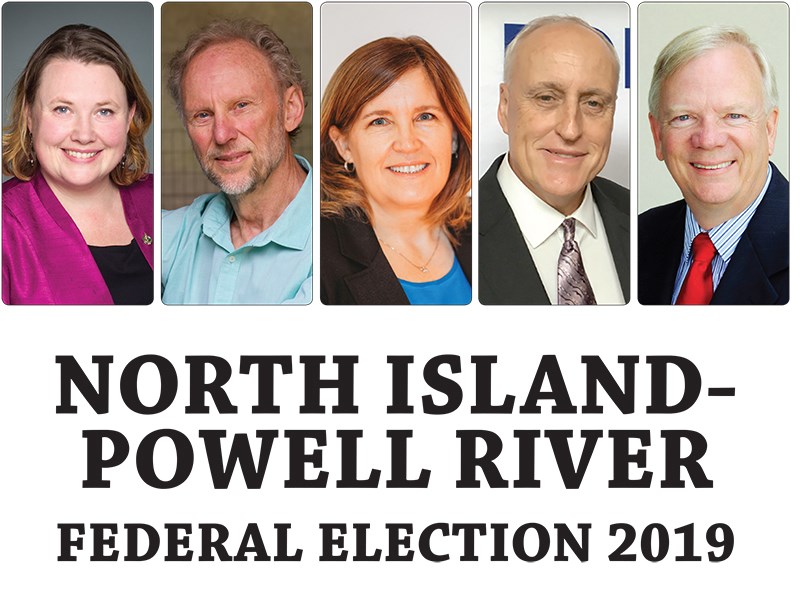With the writs dropped on Wednesday, September 11, the campaign period for this year’s federal election campaign is officially underway.
However, long before candidates were gearing up to start knocking on doors and asking for votes, Canada’s security services have been on the lookout for signs of hostile interference in the election process.
Back in July, security officials warned that while there was no direct threat of foreign actors meddling with the outcome of the October 21 ballot, such forces are nonetheless poised to spread misinformation and/or influence political campaigns.
Although the precise details of what such activities might look like remain unclear, the federal government has set up a Critical Election Incident Protocol panel, which will be ready to issue a public warning in the event of any serious interference with the election. However, any such announcement, officials said, would be made only as a last resort.
North Island-Powell River Green Party candidate Mark de Bruijn said that although voters, parties, candidates and their staff are likely to be targeted by hostile actors, he thinks it is unlikely the voting process itself will be compromised.
“Canadians can continue to rely on Canada’s strong electoral process,” he said.
Still, riding incumbent Rachel Blaney, NDP, urges voters to remain vigilant against the spread of misinformation and intimidation tactics against public figures.
“Citizens certainly have a role to play in questioning dubious information and flagging and reporting fake news and hate speech when they see it,” she said. “We’re seeing an increase in threats to politicians and other public figures spilling over from the internet to the real world, particularly against women, which is discouraging women from entering public life when we need more, not less.” (A few days after Blaney submitted this response to the Peak, thugs vandalized her campaign office in Comox with swastikas.)
In addition, Blaney said she wants to see the federal government take a more preemptive approach in holding social media platforms to account, since those online spaces are where hate speech flourishes.
“We’re proposing a national working group to counter online hate and disinformation and make sure social media platforms are responsible for removing extremist content,” she explained. “Social media companies, while using the worldwide web as their medium, must still respect and obey the laws of the countries where they do business.”
The Liberal Party’s Peter Schwarzhof, however, defended his party’s record in safeguarding the electoral process.
“Ministers (Chrystia) Freeland and (Ralph) Goodale gathered consensus among the G7 members to pressure the major social platforms to do more to ensure their platforms are not exploited,” he explained. “When an intent to spread misinformation is detected, it will be called out and correct information provided.”
The Liberal government also introduced Bill C-76, the Elections Modernization Act, in December 2018, which puts some new restrictions on foreign involvement in elections.
However, de Bruijn said the federal government has ignored calls from Elizabeth May, his party leader, for answers on the role Canadian analytics firm AggregateIQ played in influencing the United Kingdom’s decision to leave the EU in 2016.
“Greens will continue this work of finding and holding to account companies which infringe on the democratic process,” he said.
Tory candidate Shelley Downey, meanwhile, said she is primarily concerned about the fact that there is currently no limit on the amount overseas operatives can donate to Canadian third-party advertisers.
“This loophole is still open and poses a threat to the integrity of our democratic elections,” she said. “The results of Canadian elections should be determined by Canadians, not third parties.”
Downey added that her party would aim to bring government up to speed with the capabilities of Canada’s cyber-security sector, which she described as “world class.”
“A conservative government will modernize cyber procurement in Canada and better align the capabilities of our industry to meet global demand,” she said.
Similar concerns about foreign financiers are shared by the People's Party of Canada candidate Brian Rundle. However, he said, “more pressing is the influence of national mainstream media bias and fake news reporting that attempts to persuade public opinion with selective facts and sometimes outright lies.”
Rundle did not specify which media organizations he was referring to.
The candidates agree, however, that despite some of the associated risks, the rise of social media represents a net positive for political debate and engagement in the upcoming election campaign.
“We are only concerned about the deliberate spread of misinformation with the intent of damaging the democratic process or to increase polarization among Canadians,” said Schwarzhoff. “Canadians are not fools to be hoodwinked so easily.”



